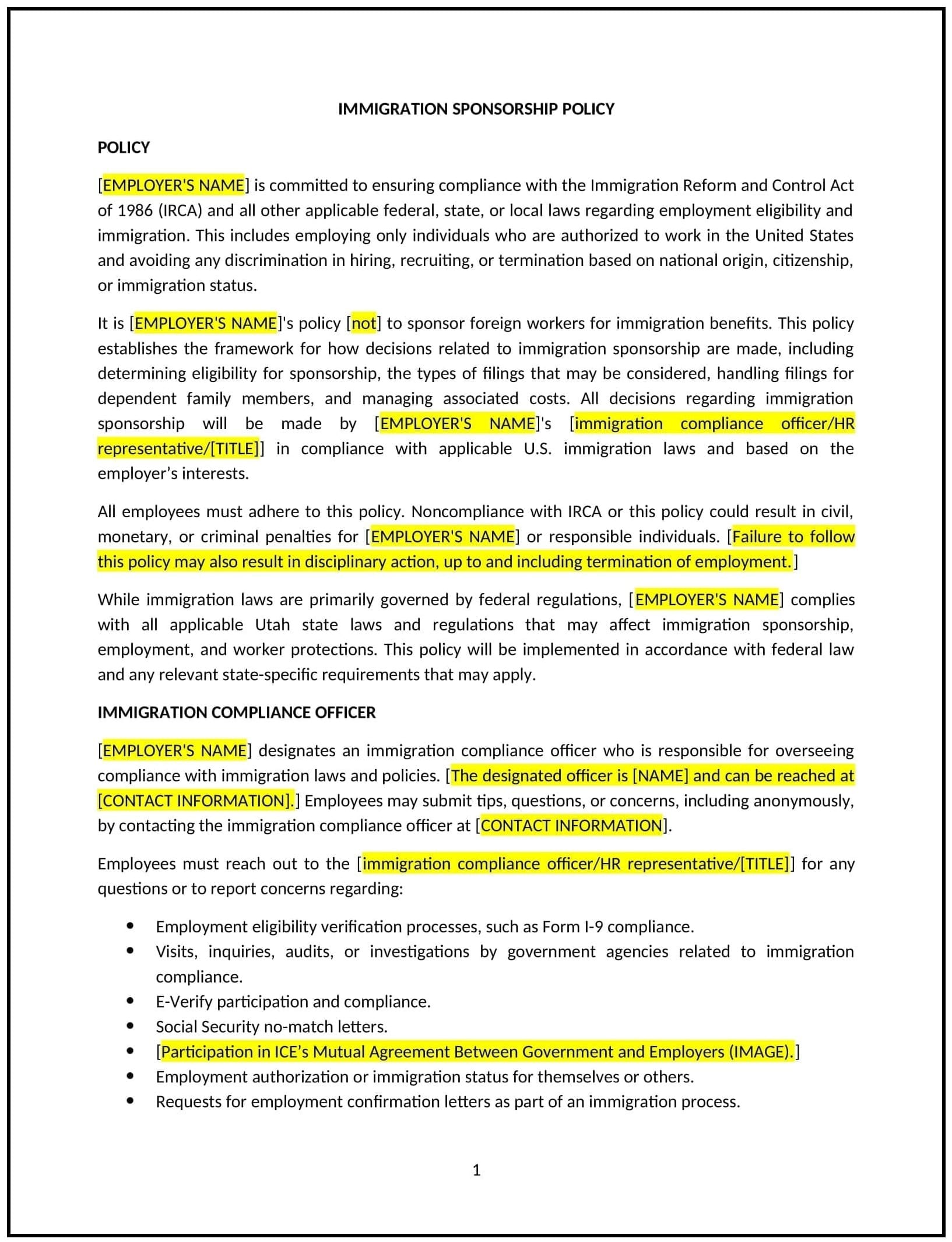Immigration sponsorship policy (Utah): Free template
Got contracts to review? While you're here for policies, let Cobrief make contract review effortless—start your free review now.

Customize this template for free
Immigration sponsorship policy (Utah)
This immigration sponsorship policy is designed to help Utah businesses establish guidelines for sponsoring foreign workers for employment-based visas. It outlines the types of visas supported, eligibility criteria, and procedures for initiating and managing sponsorship.
By adopting this policy, businesses can attract global talent, ensure compliance with immigration laws, and align with general best practices for hiring foreign workers.
How to use this immigration sponsorship policy (Utah)
- Define visa types: Specify the types of employment-based visas the business is willing to sponsor, such as H-1B, L-1, or TN visas.
- Establish eligibility criteria: Outline the qualifications required for sponsorship, such as specialized skills or education.
- Outline sponsorship process: Provide steps for initiating and managing visa sponsorship, including legal and financial responsibilities.
- Address costs: Specify which party (employer or employee) will cover visa-related expenses, such as filing fees or legal costs.
- Monitor compliance: Regularly review sponsorship cases to ensure adherence to immigration laws and company policies.
- Train HR staff: Educate HR personnel on immigration laws, sponsorship procedures, and compliance requirements.
- Review and update: Assess the policy annually to ensure it aligns with evolving immigration laws and business needs.
Benefits of using this immigration sponsorship policy (Utah)
This policy offers several advantages for Utah businesses:
- Attracts global talent: Expands the talent pool by enabling the hiring of skilled foreign workers.
- Supports diversity: Promotes a diverse workforce by hiring employees from different cultural and professional backgrounds.
- Aligns with legal standards: Helps businesses comply with federal immigration laws and regulations.
- Reduces legal risks: Minimizes the risk of non-compliance with immigration laws and potential penalties.
- Enhances competitiveness: Positions the business as an employer of choice for international candidates.
Tips for using this immigration sponsorship policy (Utah)
- Communicate the policy: Share the policy with HR staff and include it in the employee handbook.
- Provide training: Educate HR personnel on immigration laws, sponsorship procedures, and compliance requirements.
- Monitor compliance: Regularly review sponsorship cases to ensure adherence to immigration laws and company policies.
- Address issues promptly: Take corrective action if sponsorship cases are mishandled or non-compliant.
- Update regularly: Assess the policy annually to ensure it aligns with evolving immigration laws and business needs.